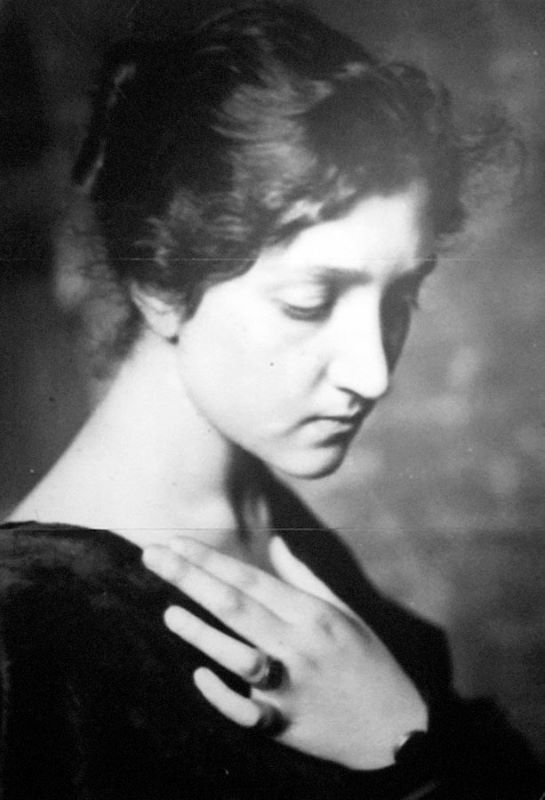The Trailblazing and Tragic Life of Antonieta Rivas Mercado
Discover the inspiring story of Antonieta Rivas Mercado, a Mexican artist and pioneer of feminism who lived a life full of passion, tragedy, and unrequited love. Read about her contributions to the arts, activism, and education in Mexico.

Antonieta Rivas Mercado was a talented Mexican artist who had many jobs, including being a cultural manager, writer, translator, women's rights advocate, political activist, actress, and teacher. She may be best known for her nickname "suicide" and her connection to José Vasconcelos. She tragically committed suicide in the Notre Dame Cathedral in Paris, using Vasconcelos' gun.
Antonieta Rivas Mercado: The Trailblazer of Mexican Arts and Feminism
Antonieta had big dreams and made many significant contributions to the arts in Mexico. She supported famous Mexican artists, musicians, and writers and co-founded the first experimental theater in Mexico, called the Teatro Ulises. Antonieta wanted to update classical plays to fit with the times and used Jean Cocteau's ideas for her productions.
She also created the Patronato for the Orquesta Sinfónica de México, which was founded by Carlos Chávez in 1928. With Antonieta's financial support, this was the first orchestra that could offer weekly performances of important international symphonies. This orchestra was a big part of how Mexican music changed and grew in the 20th century.
Antonieta was briefly the director of the School of Theater, Music, and Dance but had to give it up because of her busy schedule and conflicts with Carlos Chávez. She taught theater classes and staged a production of "Los de abajo" by Mariano Azuela. This is where she met José Vasconcelos and was drawn to his political ideas. She held meetings in his home to spread his ideas and even helped with his political career.
Antonieta was a strong voice for women's rights and is considered a pioneer of feminism. In 1928, she wrote a powerful essay called "La mujer mexicana" in which she pointed out that Mexican women were seen as inferior and treated as slaves by men. She believed that women needed to be educated and given more opportunities to think for themselves instead of being dependent on men. She wrote that women should overcome their resistance and use the available resources to become more independent.
Antonieta was the daughter of a Juchiteca-German mother and a famous Mexican architect and engineer father. Her father built famous structures in Mexico and was the director of a famous school. Antonieta grew up surrounded by artists and writers from all over the world and was well-educated in culture, languages, and embroidery. She was exposed to intellectual conversations and was a part of the cultural elite.

Antonieta Rivas Mercado: A Life of Unhappiness and Unrequited Love
When Antonieta was 13, her parents divorced, and her mother took her older sister to France. Antonieta was left in Mexico and had to take care of her younger siblings and manage the household. At 17, she married Albert Edward Blair, but their relationship was rocky, and she had to leave him multiple times because of his violence and possessiveness.
In her papers, she recounts how, one afternoon, Albert burned her French library in front of her eyes. "It is not right for a man and a woman, when they no longer love each other, to continue to live together." "The union of bodies must be the union of souls, and mine does not go to you," she wrote to him. Nevertheless, she was never able to break that arrangement.
Antonieta's turbulent life appeared to come to a halt when she met the painter Manuel Rodriguez Lozano, a member of the Contemporáneos, with whom she fell in love and to whom she submitted pitifully. Her friend could not reciprocate because he had other sexual preferences. The same era prevented Manuel from being openly homosexual, but Antonieta insisted, even knowingly.
To him, she confesses her dislike of life and places in him the meaning of her existence, as we read in her correspondence: "It is for you that I have lived; without you, I know that my life will have no purpose." Antonieta had lived in a constant state of unhappiness since she was a child, and the idea of suicide had haunted her several years before. Manuel Rodriguez was her equivocal and sentimental support.
The Tragic End of Antonieta Rivas Mercado: A Writer Ahead of Her Time
Antonieta was in a good place mentally and was focused on studying and writing. She had plans for several projects and was looking forward to the future. However, she did not live long enough to see her plans come to fruition. Her writing, mostly in the form of letters, is considered to be her best work.
Fabienne Bradu, her most faithful biographer, wrote that Antoinette's most refined art is to be found in her correspondence; the rest of her work did not make it into print, and, likely, its author would not have been satisfied to have seen it so published.
Antoinette left her stormy life in Mexico, mainly her marriage, and started writing the "Bordeaux Diaries". She wanted to write truthfully and not be afraid of her husband finding out. She was in a new apartment and wanted to focus on creating and becoming the first great Spanish-American dramatist.
The reason for Antoinette's suicide is not known. In her last diary entry, she left instructions for her son's care and did not blame José Vasconcelos, who was unaware of her plans. Despite difficult conditions, her body was not cremated and was buried in a French cemetery seven years later.
Nearly 90 years after her death, people are still interested in her story and can find it in her complete works, published in two volumes in 2018. "For me, life has been suffering and work; this is my fun and relief; I have never been able to carry a light soul; something has always weighed on me, and in truth, I wish no one a similar fate," says Antonieta Rivas Mercado in a letter to her sister.
In conclusion, Antonieta Rivas Mercado was a cultural visionary who defied societal norms and made a significant impact on Mexico's cultural life during the post-revolutionary period. She was a cultural worker who did a lot of different things. She was a book editor, a political activist, and a promoter of culture. She supported the Contemporáneos and took part in their cultural projects, such as Teatro Ulises and the magazines Ulises and Contemporáneos, which were meant to bring Mexican culture into the modern age.
Sources:
Fernández, Irasema. “El Árbol De Higos De Antonieta Rivas Mercado | Irasema Fernández.” El Árbol De Higos De Antonieta Rivas Mercado | Irasema Fernández, Sept. 2019, www.revistadelauniversidad.mx/articles/dc5a363b-3787-49cb-9a4b-82e69df3a154/el-arbol-de-higos-de-antonieta-rivas-mercado.
Cultura, Secretaría de. “La Desafiante Antonieta Rivas Mercado.” gob.mx, 10 Oct. 2022, www.gob.mx/cultura/es/articulos/la-desafiante-antonieta-rivas-mercado?idiom=es.




